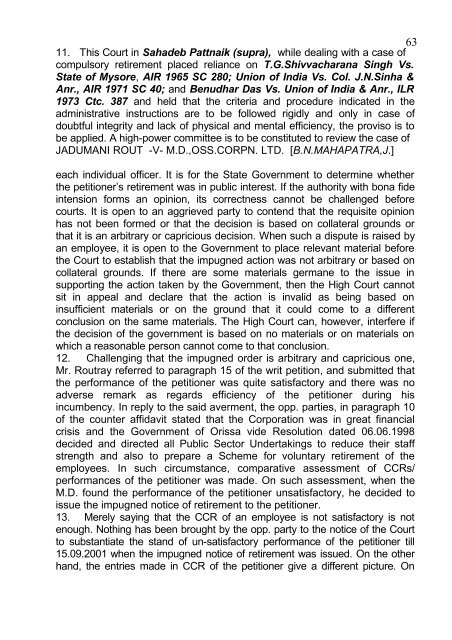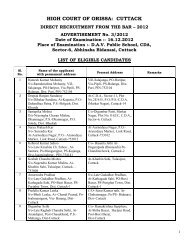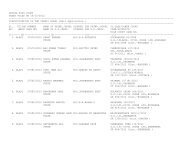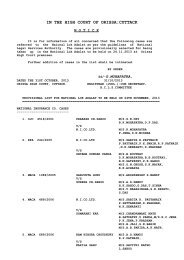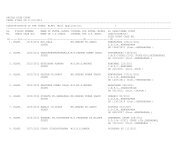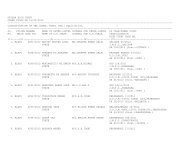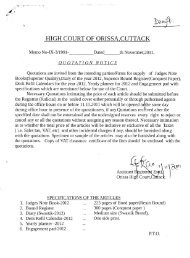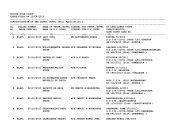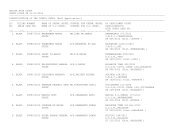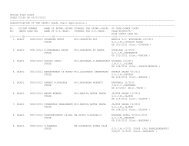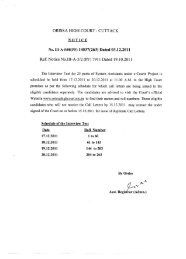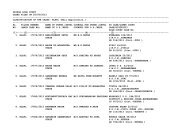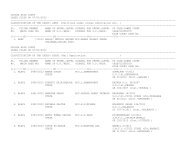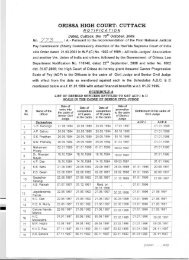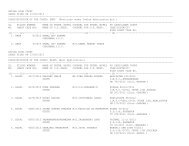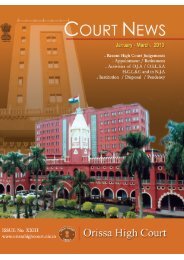ORIGINAL JURISDICTION - Orissa High Court
ORIGINAL JURISDICTION - Orissa High Court
ORIGINAL JURISDICTION - Orissa High Court
Create successful ePaper yourself
Turn your PDF publications into a flip-book with our unique Google optimized e-Paper software.
63<br />
11. This <strong>Court</strong> in Sahadeb Pattnaik (supra), while dealing with a case of<br />
compulsory retirement placed reliance on T.G.Shivvacharana Singh Vs.<br />
State of Mysore, AIR 1965 SC 280; Union of India Vs. Col. J.N.Sinha &<br />
Anr., AIR 1971 SC 40; and Benudhar Das Vs. Union of India & Anr., ILR<br />
1973 Ctc. 387 and held that the criteria and procedure indicated in the<br />
administrative instructions are to be followed rigidly and only in case of<br />
doubtful integrity and lack of physical and mental efficiency, the proviso is to<br />
be applied. A high-power committee is to be constituted to review the case of<br />
JADUMANI ROUT -V- M.D.,OSS.CORPN. LTD. [B.N.MAHAPATRA,J.]<br />
each individual officer. It is for the State Government to determine whether<br />
the petitioner’s retirement was in public interest. If the authority with bona fide<br />
intension forms an opinion, its correctness cannot be challenged before<br />
courts. It is open to an aggrieved party to contend that the requisite opinion<br />
has not been formed or that the decision is based on collateral grounds or<br />
that it is an arbitrary or capricious decision. When such a dispute is raised by<br />
an employee, it is open to the Government to place relevant material before<br />
the <strong>Court</strong> to establish that the impugned action was not arbitrary or based on<br />
collateral grounds. If there are some materials germane to the issue in<br />
supporting the action taken by the Government, then the <strong>High</strong> <strong>Court</strong> cannot<br />
sit in appeal and declare that the action is invalid as being based on<br />
insufficient materials or on the ground that it could come to a different<br />
conclusion on the same materials. The <strong>High</strong> <strong>Court</strong> can, however, interfere if<br />
the decision of the government is based on no materials or on materials on<br />
which a reasonable person cannot come to that conclusion.<br />
12. Challenging that the impugned order is arbitrary and capricious one,<br />
Mr. Routray referred to paragraph 15 of the writ petition, and submitted that<br />
the performance of the petitioner was quite satisfactory and there was no<br />
adverse remark as regards efficiency of the petitioner during his<br />
incumbency. In reply to the said averment, the opp. parties, in paragraph 10<br />
of the counter affidavit stated that the Corporation was in great financial<br />
crisis and the Government of <strong>Orissa</strong> vide Resolution dated 06.06.1998<br />
decided and directed all Public Sector Undertakings to reduce their staff<br />
strength and also to prepare a Scheme for voluntary retirement of the<br />
employees. In such circumstance, comparative assessment of CCRs/<br />
performances of the petitioner was made. On such assessment, when the<br />
M.D. found the performance of the petitioner unsatisfactory, he decided to<br />
issue the impugned notice of retirement to the petitioner.<br />
13. Merely saying that the CCR of an employee is not satisfactory is not<br />
enough. Nothing has been brought by the opp. party to the notice of the <strong>Court</strong><br />
to substantiate the stand of un-satisfactory performance of the petitioner till<br />
15.09.2001 when the impugned notice of retirement was issued. On the other<br />
hand, the entries made in CCR of the petitioner give a different picture. On


